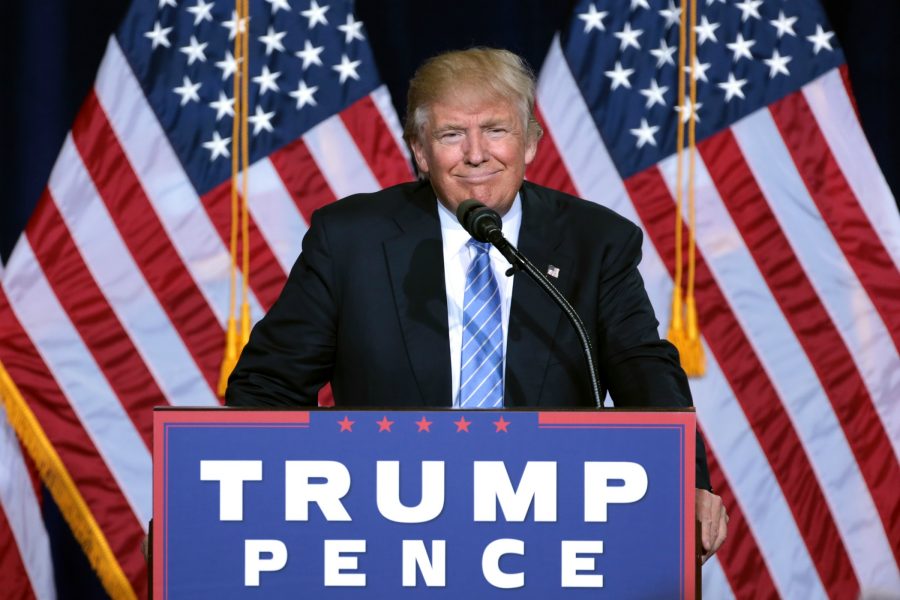Election 2016: The Aftermath
On January 20, Barack Obama will leave office. His successor for the next four years, the man who will become the 45th President of the United States, is Donald J. Trump. After making his money in real estate and his name on reality TV, Donald Trump as a presidential contender was hard to believe, and Secretary Hillary Clinton’s victory seemed assured. But thanks to unexpected turnout from white voters, Trump seems to have done the unthinkable.
Regardless of how he won, Trump’s victory poses a massive threat to minorities and world security. Working with a Republican-controlled Congress, Trump threatens to reverse progress on issues ranging from healthcare to the environment, spark a new wave of mass deportations and tarnish U.S. standing with allies in every part of the world. His Supreme Court picks could reverse progressive decisions on issues like abortion and marriage equality.
Trump’s personal conduct — he admitted on tape to groping women and faces at least 11 sexual assault allegations — is bad news for both the presidency and America’s chances of combating sexual assault. With his erratic temperament, business ties to Russia and political inexperience, Trump stands to make a number of costly mistakes. Electing him to the highest office in the land was an enormous, catastrophic, unprecedented error.
This result is especially frustrating for Californians, who justifiably feel that their vote doesn’t count in presidential elections. This election was decided in states like Florida, Ohio, Pennsylvania and Michigan. Reliably Democratic, California could hardly have changed the outcome. Since delegates in the Electoral College are winner-take-all by state, neither candidate bothered to seriously campaign here.
If the election had been decided by a national popular vote, which is fairer, simpler and avoids giving swing-state voters significantly more importance than those in California or Texas, Clinton would have won the presidency. Unfortunately it wasn’t, and she didn’t.
But regardless of who decided the presidential election, Californians had a lot to vote on. This year, voters in California legalized marijuana, kept the death penalty, taxed cigarettes and elected the first Indian-American United States senator in history. At the local level, numerous ballot measures ruled on issues from rent control to school funding. If you think you have nothing to vote on, think again.
Especially in the era of Trump, every Californian’s participation in our state’s democracy is critical. Already a leader on environmental issues, California’s emissions rules will be even more critical if Trump calls off Environmental Protection Agency action on climate change. And if the Affordable Care Act is repealed, California could follow Massachusetts in establishing a state system similar to the national exchange that currently exists.
Regardless of what Trump does, California’s state measures have the potential to spur progress across the country. Legalizing marijuana with Proposition 64 makes California a national leader in reforming drug policy. If legalization succeeds in the most populated state in the union, other states may watch the results and follow suit.
And when voters don’t show up, the results can be disastrous. In 2008, low turnout allowed gay marriage opponents to pass Proposition 8 53 to 47 percent, delaying marriage equality for five years and tarnishing the state’s reputation for respecting LGBTQ+ individuals. It’s a sobering reminder of the need to get involved.
Even in the races that get the least attention — city councils, school boards and bond measures — a lot is at stake. If you care which classes get funding or whether the city you live in is affordable for everyone, you have an obligation to get involved.
It’s also worth remembering that not all politics happens in the ballot box — protests, petitions and movements can be just as important. Even now that the federal government has fallen into the wrong hands, the next four years can still be an opportunity to organize at every level and build support for the issues that matter to everyone.
As the nation prepares for at least four years under President Trump as well as a Republican-controlled House and Supreme Court, it’s easy to feel disempowered. Thanks to the choices of voters in other parts of the country, California is stuck with the consequences of electing a man woefully unprepared for the office. But that only makes engagement more important.
So vote. Protest. Petition. Organize. Whether it’s through deciding local races, pushing for progressive state policies or joining national movements to demand change, it’s always vital to be involved in the process. Especially today.



